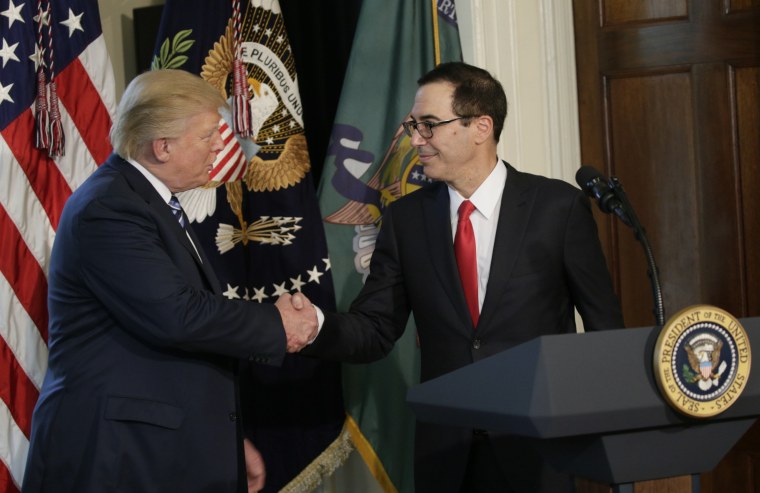The White House is preparing for the worst and hoping for the best as it plans for the possibility of a government shutdown next week. But the insistence on including many of President Donald Trump's priorities in the government spending bill has added some roadblocks to a bipartisan effort to pass it.
Both the president and his chief spokesperson expressed confidence Friday that the government would not shut down when current funding expires at midnight on April 28. "I think we’re in good shape" President Trump told reporters in the Oval Office Friday.
White House Press Secretary Sean Spicer echoed the sentiment in an off-camera briefing with reporters and insisted there doesn't have to be a choice between getting the president's budget priorities approved and avoiding a government shutdown.
"We’ve made it clear we want border wall funding, we want greater latitude to deny federal grants to sanctuary cities, we want hiring of immigration agents, and we want thirty billion dollars" increase in military funding. "Those are our priorities," Spicer outlined.
But that optimistic rhetoric was paired Friday with a White House order for agencies to begin preparations for a potential shutdown, a common administrative action this close to a funding deadline.
Negotiations are ongoing in Congress where new opposition has emerged over White House demands.
“What we are focusing on is we have our list of priorities,” including defense and border security, Office of Management and Budget Director Mick Mulvaney said this week.
Democrats are warning that those priorities are making a deal less likely. “Last minute White House efforts in this negotiation and public statements are making a bipartisan agreement more difficult to reach as is their push to have an ACA (Affordable Care Act) repeal vote next week,” said Drew Hammill, a spokesman for House Democratic Leader Nancy Pelosi.
Challenges that have arisen in talks include $1 billion for border wall and $2 billion of funding for border security separate from wall construction, according to a House aide.
“There is intense opposition to the wall from Democrats and many Republicans,” Hammill added.
Rep. Tom Reed, R- N.Y., says politics should be kept out of the funding bill. “I hope we can avoid these ideological issues and focus on keeping the lights on,” Reed said on MSNBC Friday.
Another concern for Democrats is Trump’s request for an additional $30 billion in defense funding. The White House is also threatening to cut funding in the Affordable Care Act that helps lower income people pay for health coverage, which is called the Cost-Sharing Reduction.
Though the actual risk of shutdown appears to be low, pre-appropriation-lapse calls will be held with agencies, as they have been since 2013. The agencies must then develop plans in case a lapse actually happens.
Mulvaney said in a statement Friday "while we do not expect a lapse, prudence and common sense require routine assessments to be made."


